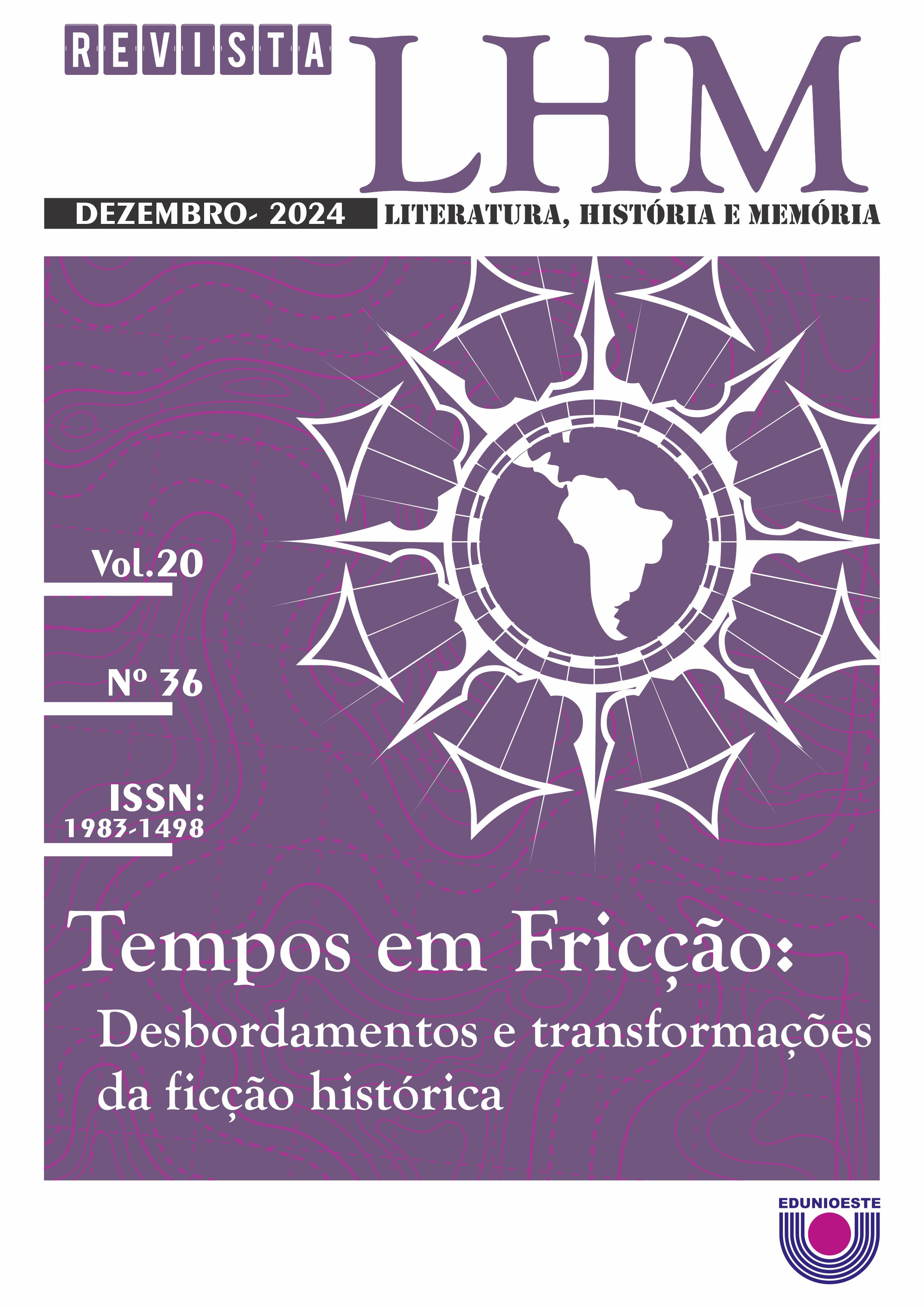A reinvenção da conquista
metaficção historiográfica e transculturação em El largo atardecer del caminante
DOI:
https://doi.org/10.48075/rlhm.v20i36.33649Resumen
Imersa no contexto da pós-modernidade, parte significativa da literatura latino-americana contemporânea costuma ter como características predominantes o questionamento do passado, a defesa da pluralidade étnica e o estímulo a fusão entre realidade e imaginação. Sabendo disso, o presente trabalho tem por objetivo analisar a obra El largo atardecer del caminante (1992), de Abel Posse, buscando identificar como essa narrativa ficcional subverte o discurso histórico dominante acerca da colonização. No desenvolvimento desse estudo, as noções de metaficção historiográfica (Hutcheon, 1991) e transculturação narrativa (Rama, 1987) são mobilizadas, uma vez que ambos os conceitos colaboram para a reavaliação da história colonial, especialmente no que se refere a relação entre os colonizadores europeus e os povos indígenas. Em termos de resultado, observou-se que a obra de Abel Posse reinventa o passado colonial preenchendo com ficção as lacunas na vida do conquistador espanhol Alvar Nuñez Cabeza de Vaca. Ao fazer isso, El largo atardecer del caminante contesta a dicotomia entre cultura civilizada e cultura selvagem, postulando a existência de uma relação de simbiose entre aspectos culturais estrangeiros e nativos. Tal relação é simbolizada por meio da transformação vivida por Cabeza de Vaca. Ao conviver com os indígenas por vários anos, ele incorpora elementos culturais dos povos originários e, ao mesmo tempo, transfere traços culturais da sociedade europeia.
Descargas
Publicado
Cómo citar
Número
Sección
Licencia

Esta obra está bajo una licencia internacional Creative Commons Atribución-NoComercial-CompartirIgual 4.0.
Aviso de Direito Autoral Creative Commons
Política para Periódicos de Acesso Livre
Autores que publicam nesta revista concordam com os seguintes termos:
1. Autores mantém os direitos autorais e concedem à revista o direito de primeira publicação, com o trabalho simultaneamente licenciado sob a Licença Creative Commons Attribution que permite o compartilhamento do trabalho com reconhecimento da autoria e publicação inicial nesta revista.2. Autores têm autorização para assumir contratos adicionais separadamente, para distribuição não-exclusiva da versão do trabalho publicada nesta revista (ex.: publicar em repositório institucional ou como capítulo de livro), com reconhecimento de autoria e publicação inicial nesta revista.
3. Autores têm permissão e são estimulados a publicar e distribuir seu trabalho online (ex.: em repositórios institucionais ou na sua página pessoal) a qualquer ponto antes ou durante o processo editorial, já que isso pode gerar alterações produtivas, bem como aumentar o impacto e a citação do trabalho publicado (Veja O Efeito do Acesso Livre).
Licença Creative Commons
Esta obra está licenciada com uma Licença Creative Commons Atribuição-NãoComercial-CompartilhaIgual 4.0 Internacional, o que permite compartilhar, copiar, distribuir, exibir, reproduzir, a totalidade ou partes desde que não tenha objetivo comercial e sejam citados os autores e a fonte.


